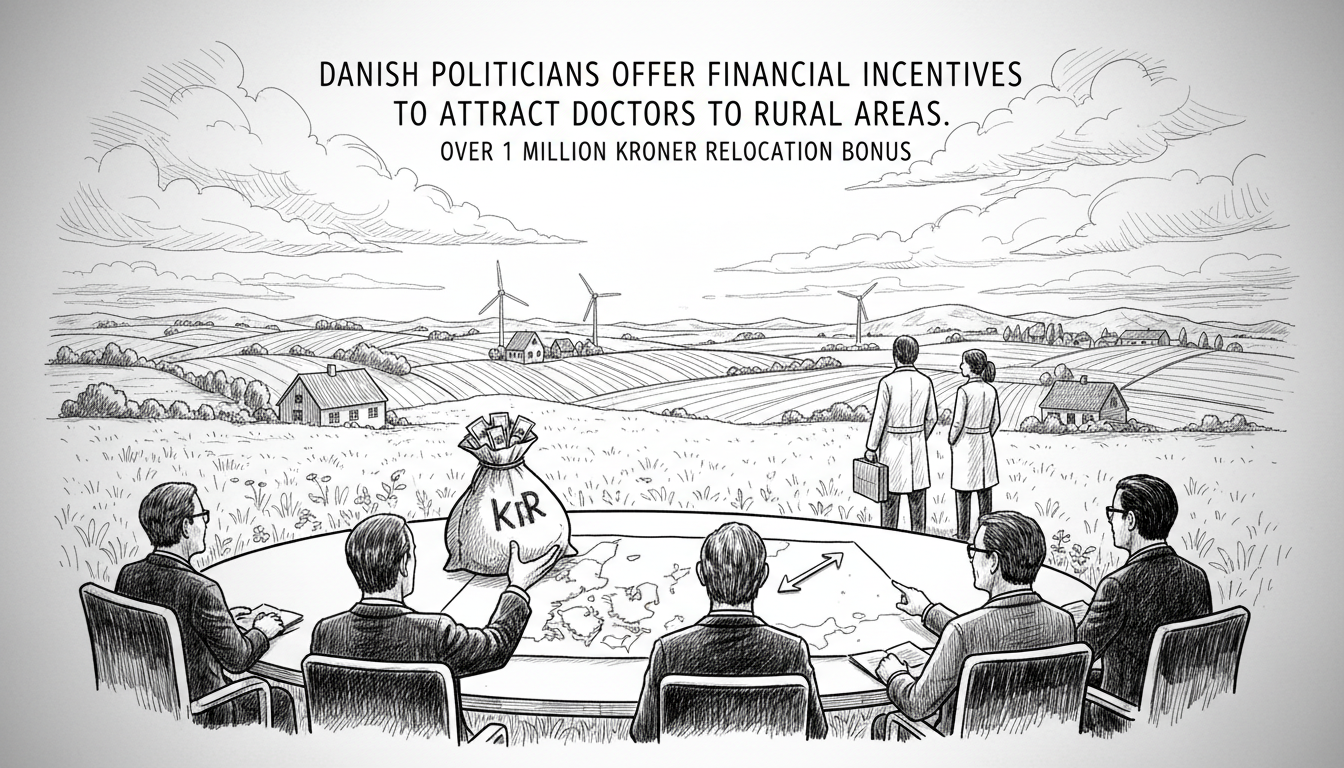Danish politicians are proposing substantial financial incentives to convince doctors to leave Copenhagen and establish practices in underserved rural regions. General practitioners could receive over one million Danish kroner to relocate from the capital to areas like Lolland. Specialist physicians would get significant monthly location supplements for working at hospitals in Falster and Southern and Western Zealand.
This initiative addresses a growing healthcare disparity between urban and rural Denmark. Copenhagen enjoys excellent medical services while rural communities struggle with doctor shortages. Patients in these areas often face long travel times for basic medical care. The situation has worsened in recent years as younger doctors prefer urban lifestyles.
Denmark's healthcare system relies heavily on publicly employed general practitioners. These doctors operate private clinics but receive government funding. The system works well in cities but creates challenges for rural communities. Many country towns have aging populations with greater healthcare needs yet fewer available doctors.
The financial incentives represent a substantial investment. One million kroner equals approximately 134,000 euros or 145,000 US dollars. Monthly supplements for specialists could reach several thousand dollars extra. These amounts reflect the seriousness of the healthcare access problem in rural Denmark.
Why do doctors prefer cities? Urban areas offer better professional networks and specialist collaboration opportunities. Copenhagen provides cultural amenities that appeal to younger medical professionals. Rural practices often mean longer hours and isolation from medical communities.
The political motivation behind this plan is clear. Rural voters have complained about declining services for years. Politicians face pressure to address these concerns before elections. The healthcare gap between cities and countryside has become a visible symbol of regional inequality.
Similar initiatives have shown mixed results in other Nordic countries. Sweden attempted financial incentives for northern rural doctors with limited success. Norway had better outcomes with combined financial and housing packages. Denmark's approach appears more generous than previous attempts in the region.
What challenges might this plan face? Some doctors may take the money but return to cities later. Rural communities need long-term commitments, not temporary solutions. The plan also doesn't address infrastructure needs in country hospitals and clinics.
International readers might wonder how this compares to their countries. Many nations struggle with rural healthcare access. Denmark's approach is notably direct with substantial financial incentives. The plan shows how Scandinavian welfare states tackle regional inequality through targeted spending.
The success of this initiative will depend on implementation details. Will there be requirements for how long doctors must stay? What support systems will help them establish practices? These questions remain unanswered in the current proposal.
Rural Danish communities will watch this development closely. For residents of Lolland and similar areas, access to local doctors could significantly improve quality of life. The plan represents hope for reversing healthcare decline in Denmark's countryside.

